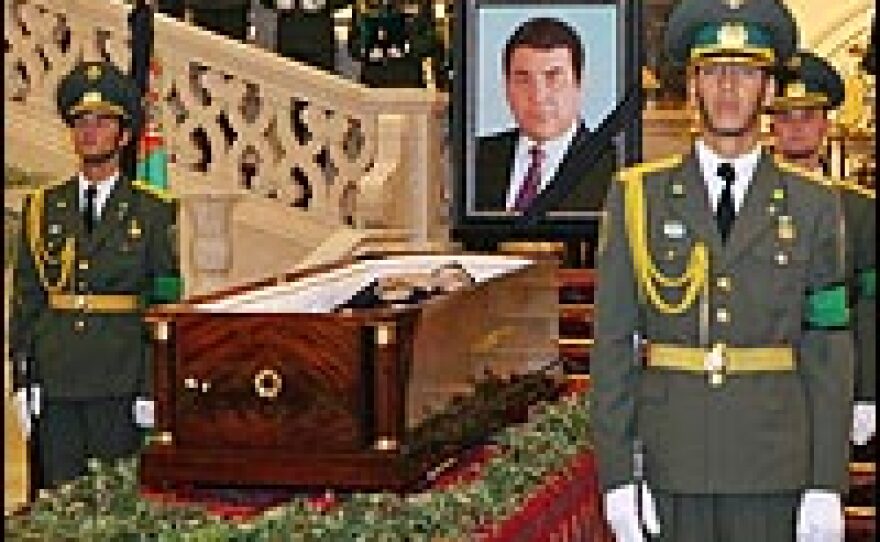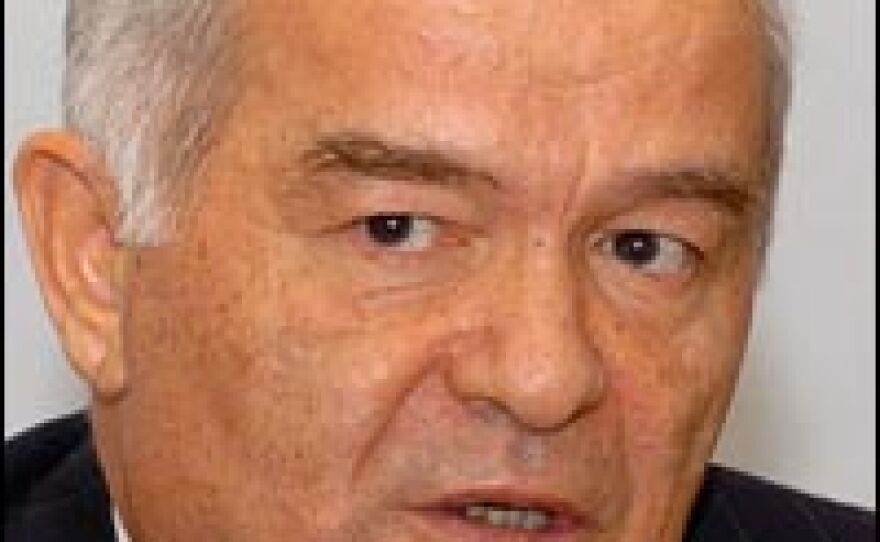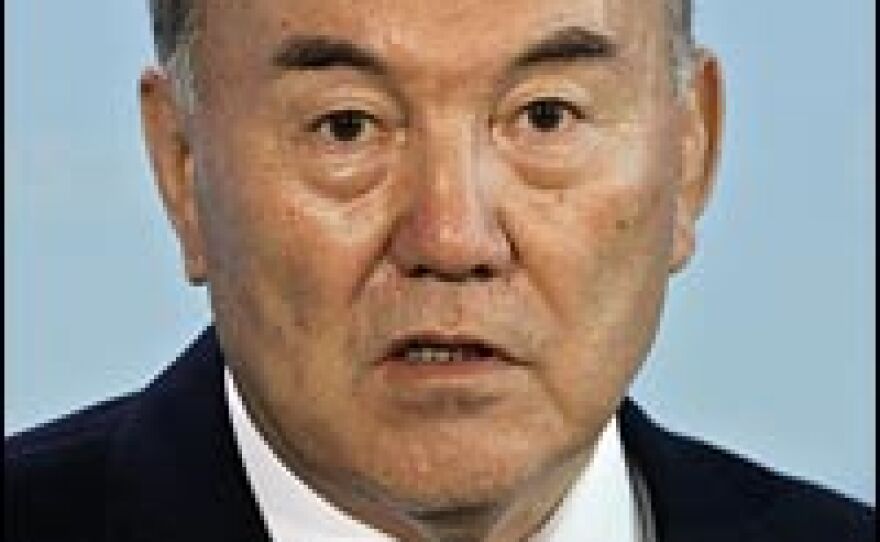



The sudden death in December of Saparmurat Niyazov, Turkmenistan's self-declared president for life, was immediately followed by a week of official mourning. The man who had ruled this Central Asian republic for more than two decades was only 66 years old.
Since the collapse of the Soviet Union, Niyazov had isolated his country from the outside world. He also created a bizarre cult of personality, calling himself "Turkmenbashi" or "Father of All Turkmen," and making his book of spiritual writings a central part of the country's educational curriculum.
Turkmenbashi's sudden death was followed by the quick imprisonment of the head of Turkmenistan's parliament who, according to the constitution, should have become the next president. Instead, a former dentist and deputy prime minister named Kurbanguly Berdymukhamedov swiftly assumed the post of acting president.
The unexpected regime change was closely watched in neighboring Uzbekistan and Kazakhstan, where two aging former Communist Party bosses have also been in power since the 1980s.
"Everybody watches each leadership transition in the region… and thinks about how that model might work in their country," says Sean Roberts, a Central Asia expert at Georgetown University, who publishes a blog about the region.
"Stability in our countries lies only with presidents. In Uzbekistan, Islam Karimov; and in Kazakhstan, Nursultan Nazarbayev," says Dosym Satpayev, a political scientist in Kazakhstan's commercial capital, Almaty. "Nobody knows what will happen... tomorrow, [or the] next day because [the] health of these presidents is not very good."
Foreign journalists and human rights workers are regularly denied visas to visit Uzbekistan. There, Karimov, 69, has maintained a strict Soviet-style economy, while also jailing and, in some documented cases, torturing political opponents.
In contrast, Kazakhstan is much more open to the outside world. Thanks to its oil fields, it is also much more prosperous. But there is never any doubt about who is in charge here.
On a platform observatory at the top of the sparkling Baiterek Tower in the snowbound capital Astana, tour guides lead visitors to a pedestal where the hand of Kazakhstan's 66-year-old President Nazarbayev is imprinted in a plate of gold.
"Palm print of our president Nazarbayev. You may put your hand [in it] and wish something. It's our tradition," says a female guide, in heavily accented English.
When asked whether Kazakhstan's next president will have his or her handprint embedded here as well, the guide only laughs and says, "I don't know."
"During the last 15 years, he [Nazarbayev] established all political system around his person. And maybe in [the] future, this person will go away, this political system will collapse, will be broken. It is very dangerous," says Satpayev, the political scientist.
Analysts say that, should something happen to Karimov, the stakes in Uzbekistan are much higher. Uzbekistan's security forces have fought bloody battles with shadowy groups of armed Islamist militants over the past decade.
"If you consider the fact that there is a fairly strong Islamist opposition over there, you can't rule out the possibility that the antithesis of Karimov, the Islamists, could come to power," says Sergei Duvanov, a journalist with the Kazakhstan International Bureau for Human Rights and Rule of Law.
"That would be a second Afghanistan," he says. "There are more then 20 million people who have been tortured by the Karimov regime, and see their savior in Islam."
Washington's top diplomat to the region, U.S. Assistant Secretary of State Richard Boucher, says he has been urging Central Asia's strongmen to begin planning for the future.
"You have to have a set of institutions for the country, and that's the only long-term guarantee of stability," Boucher says. "We've come here and elsewhere in the region to talk about democratic stability, about how you build the institutions to put power to the people and let them decide."
Both Uzbekistan and Kazakhstan spoke out against the wave of so-called "colored revolutions," which saw street protests overthrowing long-standing governments in the former Soviet republics of Ukraine, Georgia and Kyrgyzstan. But there was no revolution following the establishment of the first post-Soviet dynasty in Azerbaijan. In that Caucasus republic, there was a carefully engineered transfer of power from President Heydar Aliev, to his son Ilham.
That's led to speculation in both Uzbekistan and Kazakhstan, that the presidents' children could be named successors, because they wield huge economic and political clout. But Georgetown University's Roberts says dynastic succession is unlikely.
"The real interesting thing about the dynastic theory in Kazakhstan and Uzbekistan is that both presidents have only daughters," Roberts says. "And in Central Asia I think it's still too early to see a female president."
Last week, Kazakhstan's President Nazarbayev gave an annual state of the nation speech before parliament, during which he announced the country would enter a new phase of democratic reform. Parliament would be given more power, he said, and political parties would get a larger role in society.
"It is important that these proposals do not copy a foreign experience," Nazarbayev said to thunderous applause. "We have been forming our own model of Kazakhstani political reforms. Our own Kazakhstani way of political transit."
Critics quickly called these reforms cosmetic.
"We do not have a strict and safe system of succession," says Zhamarkan Tuyakbai, one of the only outspoken opposition figures left in Kazakhstan's parliament. "And today when this system works according to the will of one person, and it is based on his future outlook and plans, the post-Nazarbayev period scares us."
Copyright 2022 NPR. To see more, visit https://www.npr.org. 9(MDAzMjM2NDYzMDEyMzc1Njk5NjAxNzY3OQ001))






